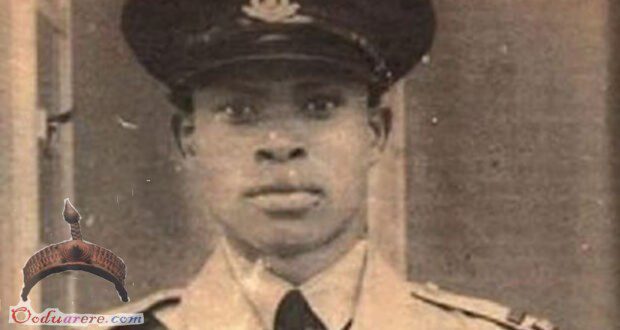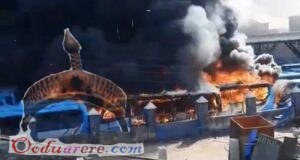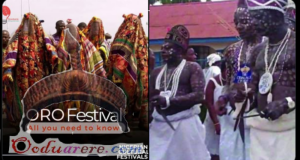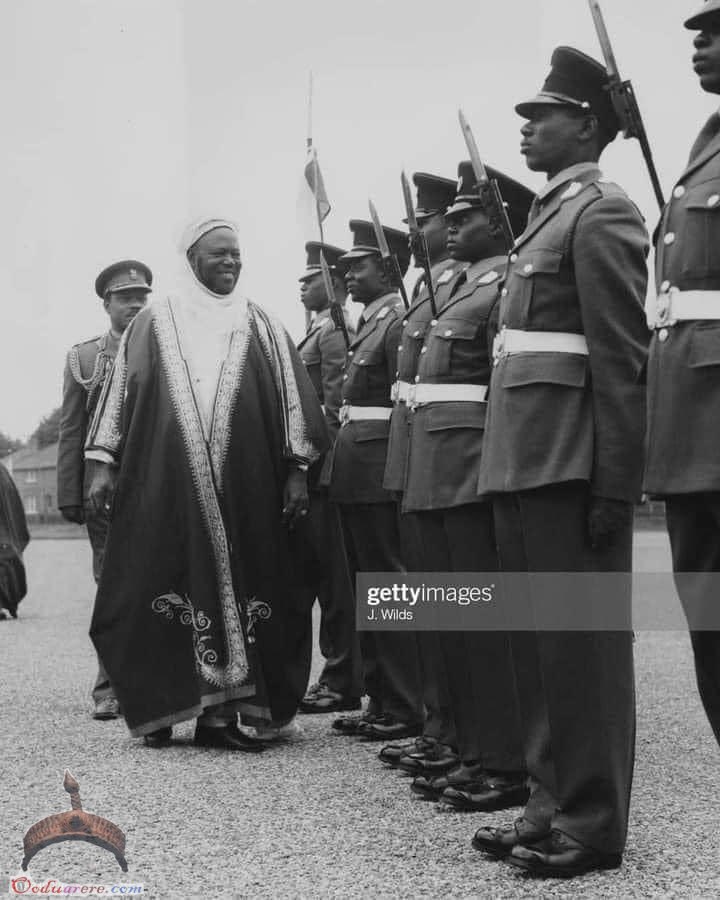The Nigerian civil war, sparked by agitations from the greater majority of Eastern Nigerians who felt politically, socially, and economically marginalized has since become a national theme within Nigeria’s historical context, inciting continued public outcry to the present date.
What many, however, may not know is that the Indigenous People of Biafra, led by Chukwuemeka Odemegwu-Ojukwu were not the first group to attempt breaking away from the Nigerian State. That honour belongs to a man who has since faded from memory.
Major Isaac Jasper Adaka Boro, fondly called ‘Boro’, a Nigerian nationalist, Ijaw, and soldier, was one of the pioneers of minority rights activism in Nigeria.
Ten years after the discovery of oil in his native Oloibiri, Isaac Boro led a revolt against the Federal Government, seeking a break away from the Nigerian nation whom he believed had cheated the Niger Delta region in its reward formula despite the region’s role as the golden goose of a country which was in its heydays of oil boom.
He was many parts and different things to different people – a university student leader, a teacher, a policeman, and a Nigerian army officer. An undergraduate student of chemistry and student union president at the University of Nigeria, Nsukka, he left school to lead an armed protest against the exploitation of oil and gas resources in the Niger Delta areas which benefited mainly the federal government of Nigeria and Eastern region with capital in Enugu and nothing was given to the Niger Delta people.
He believed that the people of the area deserved a larger share of the proceeds of the oil wealth. He formed the Niger Delta Volunteer Force, an armed militia with members consisting mainly of his fellow Ijaw ethnic group.
They declared the Niger Delta Republic on February 23, 1966, and fought with federal forces for twelve days before being defeated. Boro and his comrades were jailed for treason.
During his February 23 1966 declaration of the secession of the “Niger Delta Republic”, Boro said:
“Today is a great day, not only in your lives but also in the history of the Niger Delta. Perhaps, it will be the greatest day for a very long time. This is not because we are going to bring the heavens down, but because we are going to demonstrate to the world what and how we feel about oppression. Remember your 70-year-old grandmother who still farms before she eats; remember also your poverty-stricken people; remember, too, your petroleum which is being pumped out daily from your veins; and then fight for your freedom.”
Following their arrest, the federal regime of General Yakubu Gowon granted him amnesty on the eve of the Nigerian Civil War in May 1967. He then enlisted and was commissioned as a major in the Nigerian army. He fought on the side of the Federal Government but was killed under mysterious circumstances in active service in 1968 at Ogu (near Okrika) in Rivers state, with many insisting that Boro was betrayed by the Nigerian government.
The Nigerian Civil War, which broke out months after Boro’s failed attempt to create the first geographical division in Nigeria, has since drowned the secession attempt of the Niger Delta Republic; but then again, one may not help but wonder what history could have dished out to the Nigerian state if the fragmented ethnicities had successfully forced a break away from the marriage ceremony occasioned by Sir Frederick Lord Lugard in event of the amalgamation of the Northern and Southern protectorates which gave birth to our beloved Nigeria, with all of its frailties.
 Ọmọ Oòduà Naija Gist | News From Nigeria | Entertainment gist Nigeria|Networking|News.. Visit for Nigeria breaking news , Nigerian Movies , Naija music , Jobs In Nigeria , Naija News , Nollywood, Gist and more
Ọmọ Oòduà Naija Gist | News From Nigeria | Entertainment gist Nigeria|Networking|News.. Visit for Nigeria breaking news , Nigerian Movies , Naija music , Jobs In Nigeria , Naija News , Nollywood, Gist and more









